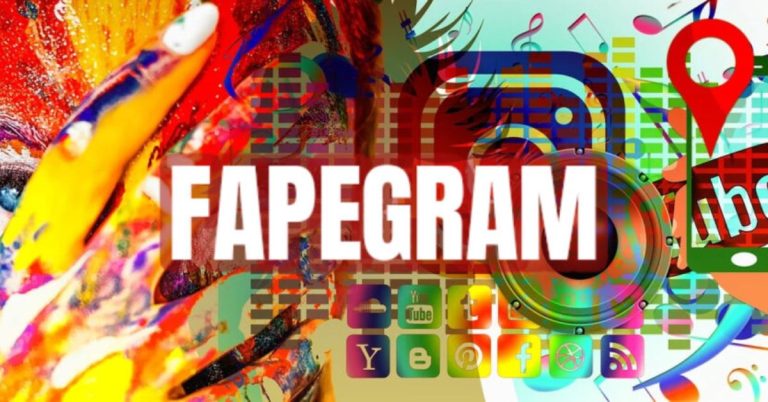Boost Your Brainpower: How to Learn More in Less Time Effectively and Quickly

In today’s fast-paced world, the ability to learn more in less time has become a highly sought-after skill. Whether you’re a student striving for academic excellence, a professional seeking career advancement, or a lifelong learner eager to acquire new skills, mastering efficient learning techniques can dramatically change your trajectory. But with countless distractions, limited time, and varying learning styles, how can you maximize your educational gains without sacrificing quality or burning out?
This comprehensive guide explores **proven strategies** and **cutting-edge tools** to help you learn more effectively, efficiently, and with sustained motivation. We will delve into the *foundations of effective learning*, *environment optimization*, *active techniques*, and the smart use of technology—along with practical tips and real-world examples—to unlock your full potential. Let’s begin your journey towards mastering the art of faster, smarter learning!
Understanding Why Efficient Learning Is Essential
The Need for Speed and Comprehension
In an era where information overload is common, the capacity to **learn more in less time** isn’t just an advantage—it’s a necessity. The importance of efficient learning lies in saving time to focus on applying knowledge, solving problems, or pursuing other passions. Moreover, quick mastery of skills leads to faster career progress and personal development, making strategic learning a crucial skill.
The Challenges of Traditional Learning Methods
Traditional approaches—long hours of passive reading, rote memorization, or repetitive lectures—often lead to burnout and limited retention. Without proper techniques, learners may spend hours on tasks that could be accomplished much faster with proper strategies. Understanding these pitfalls motivates us to explore **smarter learning strategies** that align with how our brain processes information best.
Foundations of Effective Learning
Clarify Your Learning Objectives
Define Specific, Measurable Goals
Before diving into any subject, ask yourself: What exactly do I want to learn? Setting clear, measurable goals helps direct your efforts and track progress. For example, instead of vague ambitions like “learn Spanish,” aim for “hold a 5-minute conversation in Spanish within four weeks.”
Prioritize Essential Topics
Not all information is equally important. Focus on core concepts that give you the biggest return on investment. Use resources like [Bloom’s Taxonomy](https://cft.vanderbilt.edu/guides-sub-pages/blooms-taxonomy/) to determine which areas to emphasize.
Set Realistic Timelines
Break down goals into manageable milestones. This prevents overwhelm and maintains motivation, ensuring steady progress within realistic periods.
Adopt a Growth Mindset
Embrace Challenges and Mistakes
Recognize that errors are opportunities to learn, not failures. Cultivating resilience encourages you to persist and develop new skills faster, fostering a growth mindset essential for learning more in less time.
Cultivate Motivation and Resilience
Celebrate small victories to stay motivated. Remember, persistence often outperforms raw talent in the long run—solidifying your commitment to efficient, deliberate practice.
Optimize Your Learning Environment
Minimize Distractions
Create a Dedicated Study Space
A clutter-free, quiet zone helps your brain associate this space with focus. Turn your phone off or into airplane mode, and use tools like website blockers (e.g., Freedom) to eliminate interruptions.
Gather Necessary Tools and Resources
Whether it’s high-quality textbooks, educational apps, or online courses, having well-organized resources improves efficiency. Consider platforms like [Coursera](https://www.coursera.org) for reputable courses, and organize your materials for quick access.
Proven Strategies to Learn More in Less Time
Active Learning Techniques
Self-Testing
Practicing retrieval through flashcards or quizzes cements knowledge better than passive review. Tools like Anki leverage spaced repetition to boost memory retention.
Elaborative Interrogation
Ask “why” and “how” questions while studying to deepen understanding. For example, when learning a concept, challenge yourself to explain its underlying principles rather than just memorizing definitions.
Summarization
Write summaries or teach concepts to others. This process clarifies understanding and highlights key points. Use your own words to enhance memory retention and identify gaps.
Spaced Repetition and Regular Review
Studies show that spreading learning sessions over time significantly improves long-term retention. Use spaced repetition software like Anki to schedule reviews at optimal intervals for maximum efficiency.
Focused and Pomodoro Study Sessions
Short, Intensive Intervals
Break your study time into focused sessions, such as 25-minute Pomodoros, with 5-minute breaks in between. This approach prevents mental fatigue and maintains peak concentration.
Including Breaks to Prevent Fatigue
Research indicates that brief pauses during study sessions enhance focus and information retention. Step away, stretch, or walk to refresh your mind.
Use of Multimodal Learning
Combine Visual, Auditory, and Kinaesthetic Methods
Diverse stimuli reinforce learning. Watch videos, listen to podcasts, draw diagrams, or engage in hands-on activities to cater to different learning styles and deepen comprehension. Platforms like Khan Academy exemplify this approach.
Speed-Reading and Note-Taking for Maximum Gains
Speed-Reading Techniques
Skimming for Main Ideas
Learn to quickly identify the core message of paragraphs by scanning titles, headings, and keywords. Practice chunking—reading groups of words together—and minimize subvocalization for faster reading.
Practicing Chunking and Minimizing Subvocalization
By reducing mindless pronunciation, your reading speed increases, allowing you to cover more material in less time. Online courses or tutorials on speed-reading can boost this skill efficiently.
Effective Note-Taking
Methods like Cornell or Mind Mapping
Structured notes improve organization and review. For example, the Cornell Method divides notes into cues, notes, and summaries, facilitating active recall. Mind Mapping visually links concepts for better understanding.
Digital Notes for Easy Review and Organization
Apps like Evernote or OneNote allow quick annotation, tagging, and synchronization across devices, making your review process more efficient and flexible.
Leveraging Technology and Digital Tools
- Utilize learning apps and platforms like Duolingo, Khan Academy, or Udemy for structured courses.
- Access webinars, tutorials, or online communities to expand your learning resources.
- Be mindful to limit screen time during study sessions to avoid fatigue. Use app timers to maintain discipline.
Integrating these tools enables you to learn faster and more effectively, turning your devices into powerful learning assistants.
Maintaining Motivation and Building Consistency
Track Your Progress
Use Journals or Apps
Logging your activities keeps you accountable and provides motivation. Tools like habit trackers or learning dashboards reveal your growth over time.
Adjust Strategies as Needed
Reflect and Experiment
Regularly evaluate what works best and stay flexible. If a method isn’t yielding results, try alternative approaches or update your goals.
Establish a Routine
Create Consistent Study Habits
Cultivate daily or weekly study schedules to make learning a habit. Over time, routines become automatic, reducing resistance to studying and enhancing retention.
Additional Tips for Accelerated Learning
- Stay curious and ask questions—curiosity fuels deeper engagement.
- Teach others what you learn; teaching reinforces your understanding.
- Prioritize rest and sleep, as they are crucial for consolidating new information. Sleep hygiene impacts learning efficiency.
- Maintain a healthy lifestyle—exercise and good nutrition improve mental clarity and focus.
Summary of Key Strategies
| Strategy | Description | Example/Tools |
|---|---|---|
| Clear Goals | Set specific, measurable objectives for focused learning | SMART goals, Bloom’s Taxonomy |
| Active Learning | Engage actively through self-testing and teaching | Flashcards, Quizzes, Teach-back |
| Spaced Repetition | Schedule reviews over increasing intervals | Anki, RemNote |
| Pomodoro Technique | Work in focused intervals with breaks | Pomodoro timers |
| Multimodal Learning | Combine different learning styles and media | Videos, Podcasts, Diagrams |
| Technology Tools | Leverage apps and online resources | Coursera, Khan Academy, Evernote |
Frequently Asked Questions (FAQs)
- How can I learn faster without sacrificing understanding?
- What are the best tools for learning more in less time?
- How long should study sessions be for optimal productivity?
- How can I stay motivated over long periods?
- Is speed-reading effective for academic learning?
- How many hours a day should I dedicate to effective learning?
- Can technology replace traditional learning methods?
- What role does physical health play in learning more in less time?
- How do I deal with procrastination when trying to learn quickly?
Use active learning techniques like self-testing and summarization, combined with spaced repetition. Focus on understanding core concepts deeply.
Popular tools include Anki for spaced repetition, Evernote for note-taking, and online platforms like Coursera or Udemy for structured courses.
Typically, 25-30 minute focused sessions (Pomodoros) are most effective, with short breaks to sustain concentration.
Set clear goals, track progress, reward small wins, and maintain a routine. Teaching others also boosts motivation and retention.
Speed-reading helps especially for skimming materials, but comprehension is key. Combine speed-reading with active note-taking for best results.
Quality matters more than quantity. Focused, consistent sessions of 1-2 hours daily can lead to significant progress.
Technology complements and enhances traditional methods but should be used strategically within a balanced approach.
Good nutrition, exercise, and sleep are essential for cognitive function and memory, significantly impacting learning efficiency.
Break tasks into smaller steps, set timers, and remove distractions. Remember your goals and reward yourself for milestones achieved.
By integrating these **key strategies**, you will develop the skills to **learn more in less time** with greater clarity and retention. Embrace deliberate practice, stay adaptable, and most importantly—enjoy the process of growth and discovery!





